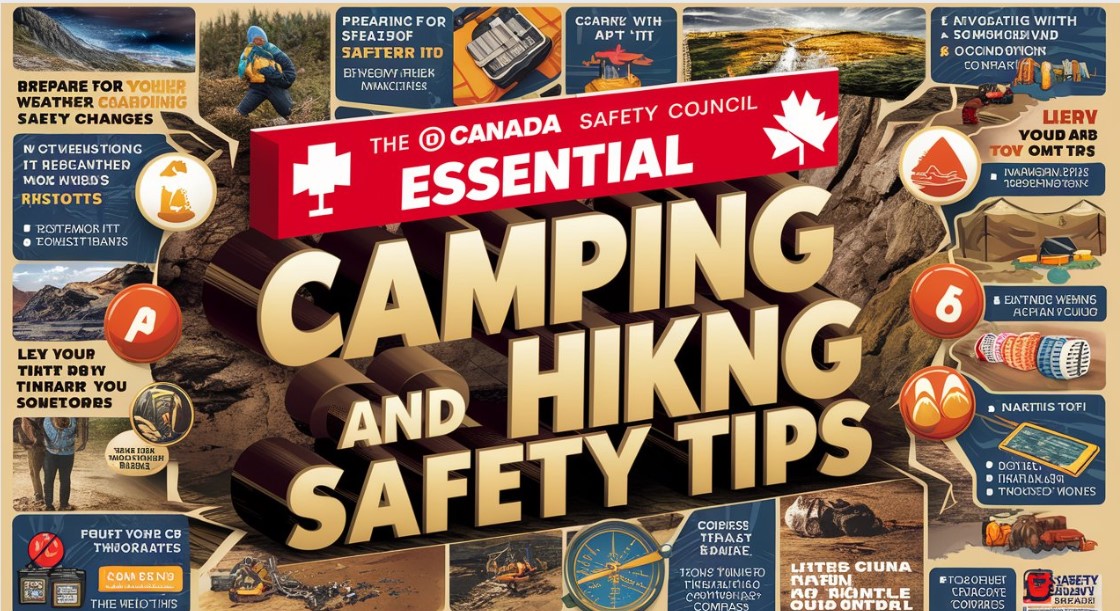As the allure of nature beckons adventurers of all ages to explore the great outdoors, the Canada Safety Council emphasizes the importance of safety and preparedness during National Summer Safety Week, May 1 – 7. Gareth Jones, President and CEO of the Canada Safety Council, highlights the significance of meticulous planning and preparation to ensure a safe and memorable outdoor experience. Here are crucial safety tips for your next camping or hiking adventure:
Planning and Preparation
Before setting out, invest time in researching your destination, including trail conditions, weather forecasts, and potential wildlife encounters. Develop a comprehensive itinerary and share it with someone not joining you on the trip. This step is vital for ensuring help can find you if needed.
Understanding Your Limits
Select trails and campsites that align with your physical capabilities and experience level. Being realistic about your fitness and endurance can prevent accidents and ensure a more enjoyable experience.
Appropriate Dress Code
Wear layers to adapt to changing weather conditions. Start with moisture-wicking base layers, add insulating mid-layers, and top off with a waterproof outer shell. Opt for hiking boots that offer good ankle support, and don’t forget a hat, sunglasses, and sunscreen to protect against the sun.
Hydration and Nutrition
Stay hydrated by drinking water regularly, and pack nutrient-dense, lightweight snacks like trail mix, energy bars, and dried fruit. Avoid alcohol and caffeine, as they can lead to dehydration and impair judgment.
Fire Safety
When using fire, stick to designated pits or backpack stoves. Keep fires manageable, have water on hand for emergencies, and always be aware of the fire’s location to prevent accidents.
Water Safety
Be cautious around natural bodies of water, which were the site of 47% of Canada’s unintentional drownings in 2020. Check water conditions before engaging in activities, and never swim alone. Having companions can be lifesaving in emergencies.By adhering to these safety guidelines—planning ahead, knowing your limits, dressing appropriately, staying hydrated, and being cautious around fire and water—you can enjoy a safe and fulfilling outdoor adventure.



